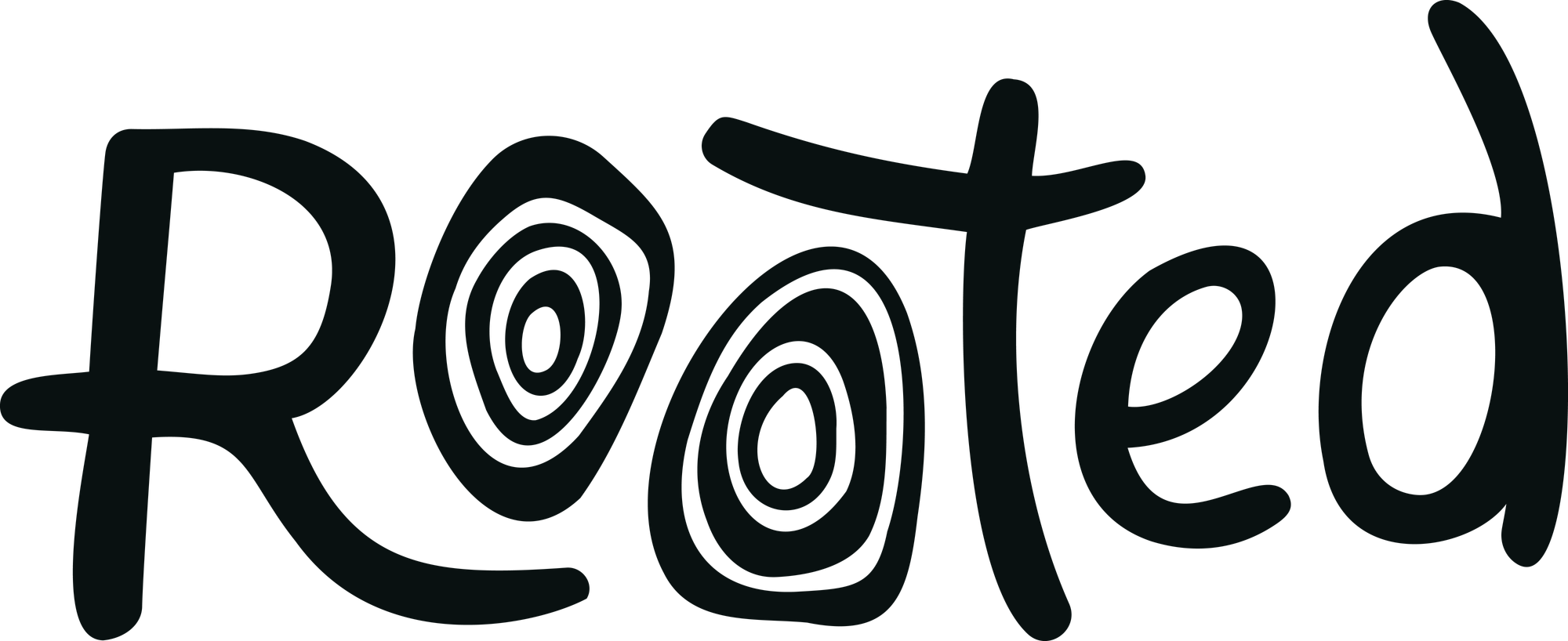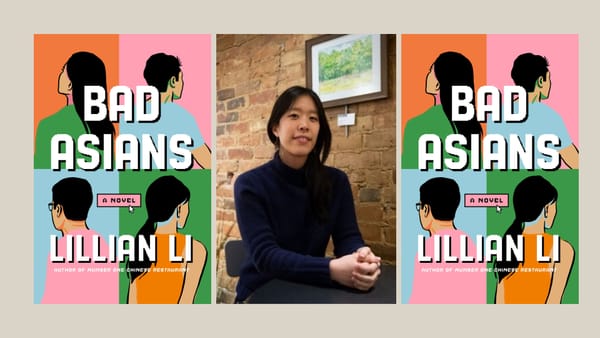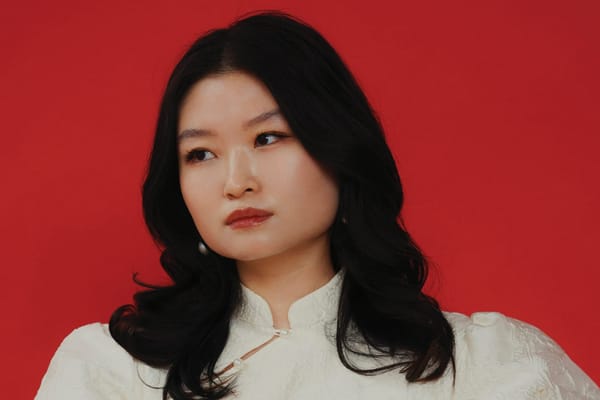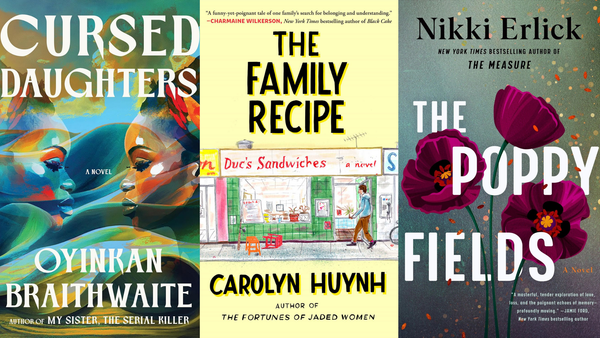Alan Z talks authenticity in the face of show business
Alan Z is no stranger to media executives and other outside forces that have tried to box in his artistry.
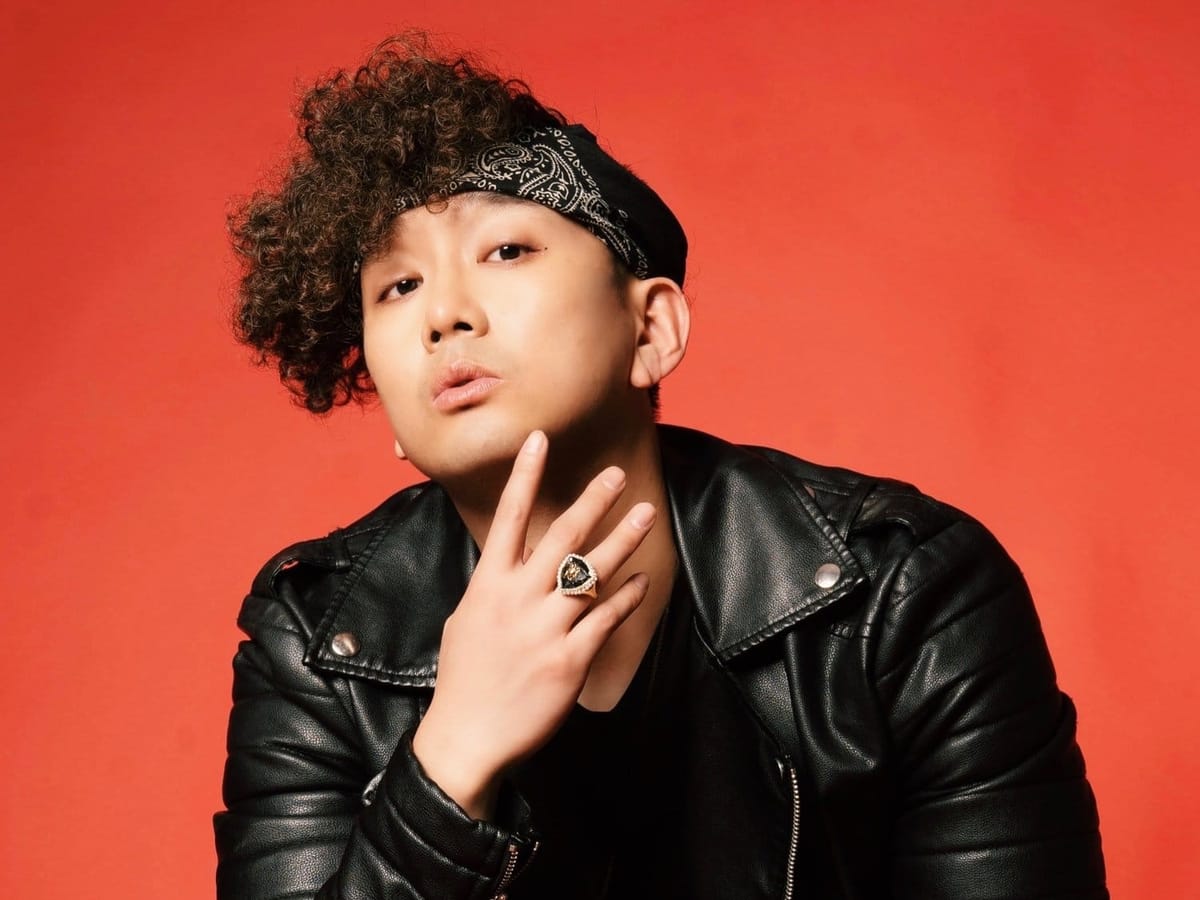
For generations, the entertainment industry has held minimal to no space for Black, Indigenous, Latino, Asian and other people from historically marginalized groups to thrive.
Asian American performers, in particular, are often cornered to conform to stereotypes and caricatures of their identities. That’s according to a 2021 study co-published by the Geena Davis Institute on Gender in Media, the Coalition of Asian Pacifics in Entertainment and Gold House.
Multihyphenate Alan Z, who is from Atlanta, is no stranger to media executives and other outside forces trying to box in his artistry. From being told to pursue K-pop, to navigating an industry where content creation and algorithms increasingly determine who sees more play, he’s been able to carve out a path while remaining — genuinely — himself.
Tell us about who you are and where you come from. Describe yourself in a nutshell. Who is Alan Z?
To sum myself up, Alan Z is a renaissance man. An actor, writer and musician who overcame all odds to succeed and manifest his dreams. As a kid, I moved around a lot from Asia to Europe before my family and I settled in America around the time I was 6. I spent most of my childhood between Maryland and Seattle, but I consider Atlanta my stomping grounds because that’s where I began making a name for myself when I attended Emory University. I had a rough time growing up in Seattle because I was bullied and ostracized in school for my love of hip-hop. The better I was at rapping, the more I was ridiculed by white kids for participating in Black culture as an Asian guy.
Ironically, when I moved to Atlanta and my circle became predominantly Black, I finally received the love and admiration that teenage Alan would have never imagined. When I won this battle rap tournament and word got around campus, I felt like Eminem after winning his battle with Papa Doc in “8 Mile." As much as I hate being overlooked and doubted, I do feel like I thrive off proving naysayers wrong.
Tell us about your career trajectory. How did you get to where you are now and what have been some of your most memorable highlights?
I’m at a critical turning point in my career since I pulled a Will Smith and shifted my primary focus from music to acting. Considering how many rapper-turned-actors there are in Hollywood, I would say this is a natural transition. But in terms of my most memorable highlights as a musician, I would say: headlining a tour in 2022 (one of my fondest memories ever); releasing “Face Value,” a concept album centered around Asian American history which featured the likes of Ronny Chieng, Dante Basco, AJ Rafael, Ruby Ibarra, Bee Vang and Ann One; getting my music featured on Netflix and TV shows; performing for thousands of people at festivals; and receiving praise and recognition from my childhood rap idols such as Chino XL, Tonedeff, Juelz Santana, Substantial and Stic from Dead Prez.
You’re multi-talented, a triple threat, if you will — with acting, music and writing. Do you remember the moment you decided that this was the path for you?
I’ve always wanted to be in show business. My first love was music: I started rapping when I was 12 and singing when I was 15. I knew I had a knack for bar-heavy lyricism and catchy melodic tunes at an early age. But I also knew that eventually, I would move on from music to get into acting. The music industry has been a traumatic rollercoaster ride, one that I would not recommend to anyone who isn’t a nepo baby. However, being an actor allowed me to discover joy that I was unable to find in my countless years as a musician. And my pen game transferred rather effortlessly from songwriting to screenwriting, so filmmaking was a full-circle moment as a multi-hyphenate.
What have been some of your biggest challenges in choosing this path?
Racism and dealing with egotistical sociopaths. I began my journey in music as a teen before the explosion of K-pop, so whenever I got scouted by major labels and music managers, my race was always the elephant in the room. They made me feel like being Asian was something to be ashamed of. I’ve heard every microaggression imaginable, dressed up as non-constructive feedback: “You should go back to Asia and blow up there first; you’ll sell millions of records since everyone looks like you there.” “We should hide your face until it’s time to reveal you’re Asian.” “Your music is great, but you should give them to a white artist to sing them.”
When the issue wasn’t race-related, it was because I did both hip-hop and R&B during a time when being in more than one genre wasn’t widely accepted yet. For every label exec who wanted me to only sing, there was another who wanted me to just rap. “Not everyone can be Drake,” they said. Then the 2010s came along and everyone rapped and sang. “Asians just aren’t marketable,” they said. Then BTS blew up and suddenly they were calling my phone like, “Hey … have you heard of this new thing called K-pop? You should do that!”
I would eventually leave every label situation to build my own fan base independently. My social media prowess enabled me to garner an online following and my business acumen led me to book shows and festivals across the states to further propel my momentum. But fast forward to the 2020s: music has become so integrated with TikToks and “content creation," that it no longer has a place by itself. In today’s algorithmic climate, everything is labeled content, which means a song is in the same category as a meme — which also explains why most trending songs now sound like fast food in audio form. It’s heartbreaking. Thankfully, there’s still a standard of quality upheld in the mainstream film and TV world.
A lot of your music speaks particularly to the Asian American community. What do you want them, and the broader audience, to feel or take away when they hear your work?
I think it varies from song to song, from project to project. For instance, with my album “Face Value” I wanted to take the listener on an authentic Asian American experience to feel our collective pain and celebrate our joys throughout history: songs like “Foreigner,” “Yellow Peril,” and “Model Minority” dissect how and why the rise of Asian hate has been ongoing since the 1800s. But aside from that, most of my music is more about vibes and I want the broader audience to keep my songs on their rotation e.g. “Pull Up,” “Rotation,” “All of You,” “Chill” and “Color Me Bad." To bump my music regardless of their race.
When I rap, I’m very competitive and I make it known that I intend to outshine and destroy anyone who wants smoke. When I sing, I’m melodic and my intent is to create hooks that stay on your mind. So when I fuse those two together, I present the best of both worlds on one record.
Leaning more into that last question: For years, there’s been a growing emphasis on the importance of representation in the media. What do you think we lose when spaces for folks like these disappear and what else can we improve by being part of it?
I definitely think representation in the media is highly important. It’s the main reason why I have such a passion for being an entertainer: to be seen and heard so that I can use my platform to speak up for other Asian Americans, who may feel ignored or silenced. However, we need to not only be on screen but also have power and voices behind the scenes to be able to tell our stories authentically.
Take “Chang Can Dunk” for example, it was such a nuanced coming-of-age story about an Asian American basketball player in high school because Jingyi Shao, the director and screenwriter, was Asian American. Thus, the story was very multilayered and contained cultural gems that non-Asians may not have been able to deliver on their own when attempting to create an authentic Asian American story. And in front of the camera is what I’m super passionate about — to be able to be the embodiment of change on film and TV, rather than hoping and wishing for someone else to make it happen.
What insights would you pass on to aspiring artists?
If you want to pursue the arts, you must want it more than anything because you will encounter sacrifice, heartbreak, constant rejection and countless setbacks. And when you are on this path, learn the art of discernment and be careful who you allow into your circle. And lastly, practice gratitude and patience because it will benefit you greatly. Chasing your dreams is just like an anime arc: it’s more about the journey than the destination.
Lastly, what can we look forward to from you? Anything upcoming we should know about?
I have new music coming out soon, which y’all can find on Spotify and Apple Music. Aside from that, I recently wrote, co-directed and starred in a short film called “Porcelain,” and we’re currently in post-production. So be on the lookout for that project, along with a few other upcoming film and TV productions that I am involved in. And if you’d like to stay in touch with me and my work, you can find me on all social media at: @AlanZmusic.
